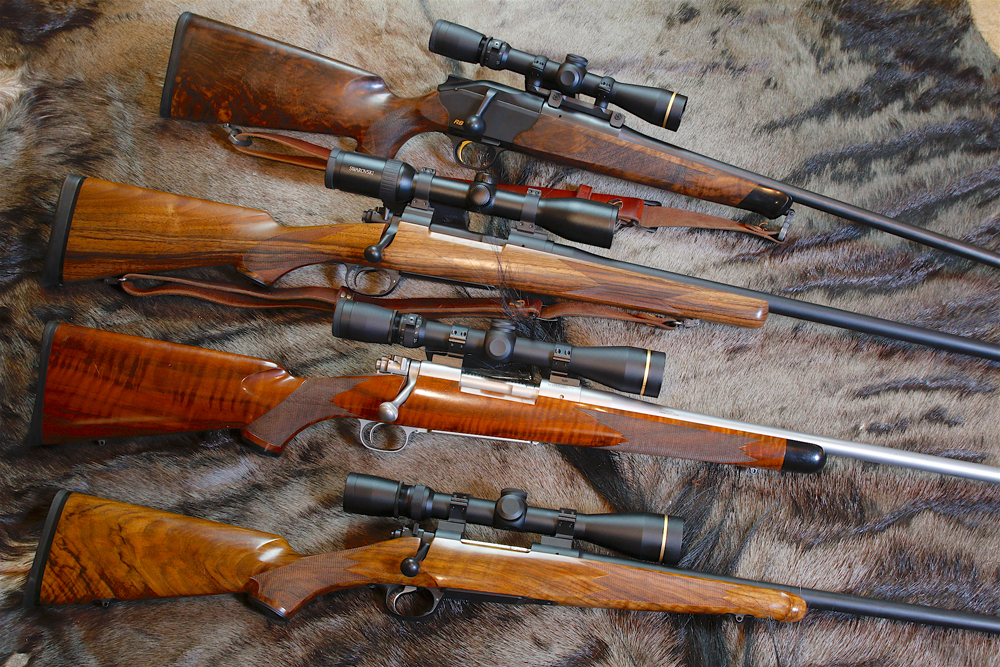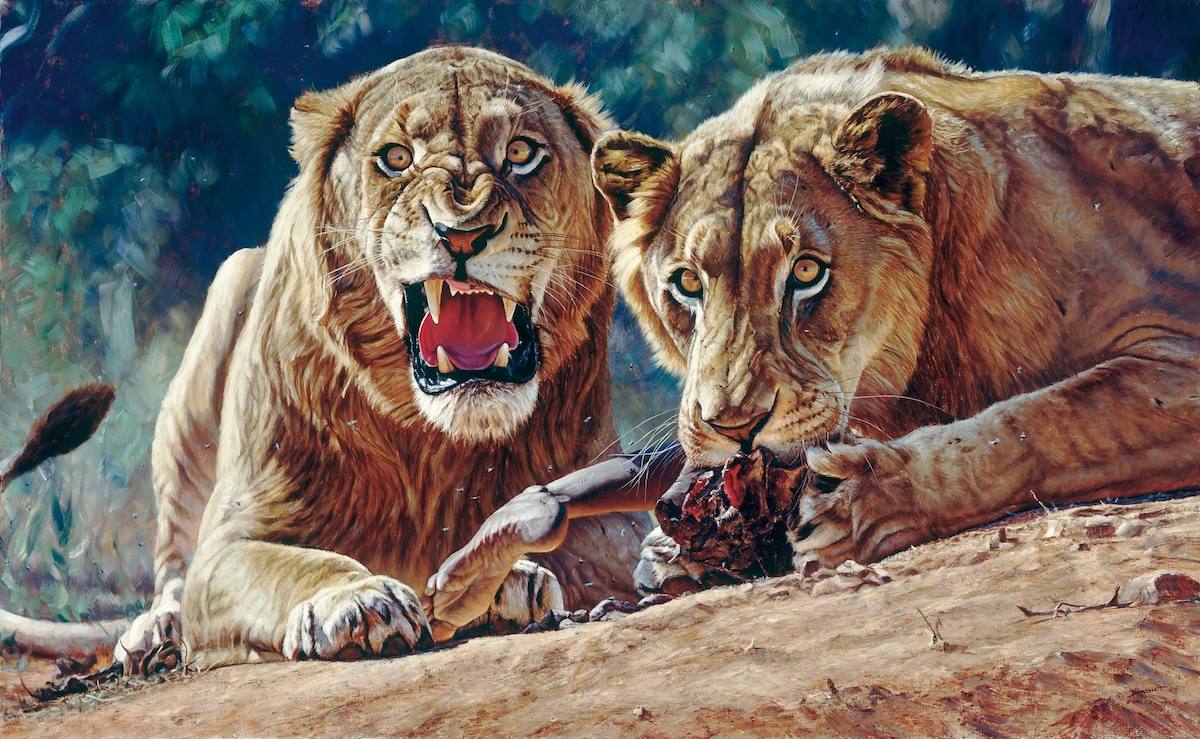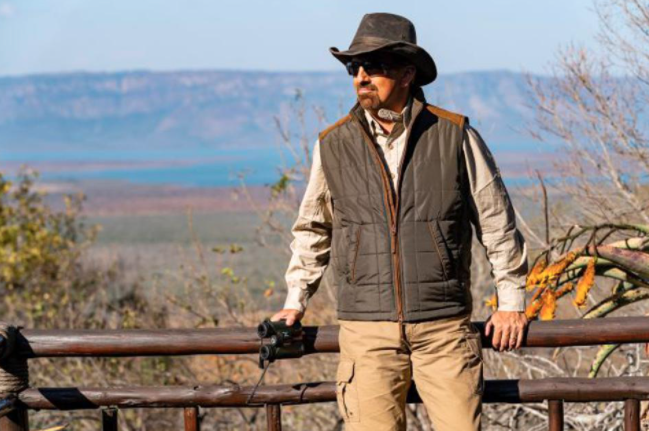We’ve outlined suitable cartridges and bullets for hunting African plains game. In this post we’ll figure out the best plains-game rifle for your inexpensive Africa safari. Remember, plains game includes all the non-dangerous-game species from 2,000-pound eland down to ten-pound dik-dik.
I think a sensible approach to choosing the best plains-game rifle is to prioritize what you want it to do. For instance, you might want it to look really cool and impress your friends, but that won’t improve your success if your gun can’t keep three bullets inside a five-gallon bucket at 100 yards. Here’s a list of what I think are a plains-game rifle’s most important attributes. You are free, of course, to reorder them as you see fit. As I always say, hunting is a personal affair indulged for many reasons. Choose yours, and get as much joy out of the adventure as you can.
TOP ATTRIBUTES IN BEST PLAINS-GAME RIFLE
1. Functional and dependable. Your rifle is a tool for sending bullets out to terminate the game you target. It should launch those every time you tell it to, smoothly, quickly, and without a hiccup. Choose a firearm that loads, cycles, and fires reliably whether cold, hot, dry, wet, muddy, or dirty. Hot and dusty are most likely in southern Africa, but I’ve hunted there in snow and rain a few times. You probably don’t want a rifle so precisely, tightly built that it locks up with a blade of grass in the locking recesses. Standard, over-the-counter, mass-produced deer and elk rifles usually work just fine. The safety should work reliably and smoothly with no hang-ups.
2. Rugged and durable. This is a subset of No. 1, but so critical that I want to reemphasize it. You don’t want a fussy rifle with delicate parts prone to loss or breakage. Most PHs (outfitters) have a good selection of tools and some basic gun-maintenance skills, but you aren’t likely to find a gunsmith anywhere near your hunting grounds.
3. Accurate. Don’t worry about sub-MOA accuracy. An rifle that can put every shot into a two-inch circle at 100 yards is accurate enough for African antelope out to 300 yards, where all of those bullets should fall within a six-inch circle. At 400 yards they’ll cluster inside an eight-inch circle. A few tiny antelope like steenbuck don’t present an eight-inch vital zone, but most of these Lilliputian animals are taken well inside of 100 yards anyway. So 2 MOA is accurate enough. Nonetheless, I suspect most readers will strive for a rifle that shoots closer to MOA, which means all shots fall inside of a one-inch circle at 100 yards, a four-inch circle at 400 yards. That’s reassuring accuracy. If your pet rifle isn’t delivering it, consider trying different loads and bullet weights. Often that is enough to tighten up groups.
4. Balanced. A hunting rifle should be easy to carry through thick brush and over long desert hikes. It should come to your shoulder quickly and easily with the sights nearly aligned with your target. You don’t want a heavy, unbalanced rifle you have to set up like artillery. There’s lots of game and good stalking cover in most venues, so you really don’t need a long-barreled sniping rifle. Sporter-weight barrels 22- to 24-inches long are best. Yes, you can find hunting operations that will let you sit in blinds overlooking waterholes or migration routes. You can find big, open country in which to shoot long. But if you plan on getting down and dirty with the game, if you want the undeniable thrill of sneaking through this ancient wonderland of wildlife, seeing the tracks and droppings and trails and encountering Africa up close and in-your-face, you want a rifle that isn’t going to slow you down.
5. Back-up rifle. One rifle can do it all, but what if it breaks? Often you can borrow your PH’s rifle (ask before you go). That’s easier than hauling a second rifle through airports and customs but might cost you a rental fee. It’s more fun using your own rifle, so I recommend that. Choose one in a versatile chambering like .280 Rem. or .30-06 and you can grab it when stalking smaller stuff, yet still expect it to do the job if something bigger crosses your path. As indicated in our previous post on cartridges and bullets, the right bullet is more important than caliber. Another second-rifle option is a specialty cartridge, such as a .22 Hornet or .223 Rem. for duiker, steenbuck, dik-dik, and other tiny game. Most PHs will provide an assistant to carry a spare rifle as you hunt, so you could have two on hand nearly all the time. Or take identical rifles chambered for different cartridges. A short-action .243 Win. and .338 Federal, for instance, would give you a light caliber for smaller game and a heavy-bullet option for bigger stuff, both in a short action with interchangeable parts. Ditto a .270 Win. and .35 Whelen. If you’re hunting with a partner, you could each carry the same model rifle in different calibers and swap to match the game of the moment. My wife and I have done this a time or two.
6. You may fine-tune your rifle choices based on PH recommendations and your hunting style, but don’t allow a PH to browbeat you into getting a super-magnum you don’t really want just because he likes it. Too many first-time safari hunters have flinched their way into anger and frustration with a new, big, hard-kicking rifle when their familiar old deer or elk rifle could have worked perfectly. Again, bullets are way more important than the absolute best plains-game rifle.
ONE SPECIAL ATTRIBUTE IN A BEST PLAINS-GAME RIFLE
7. If you need an excuse to buy a new rifle, this could be it! Let’s face it, folks, a big part of our hunting fun is dreaming of, identifying, buying, tweaking, and hunting with a dream rifle. If you’ve been dreaming of the perfect Africa rifle, this is your excuse to buy it. Seriously, if you have an effective deer or elk rifle, you don’t need the absolute best plains-game rifle, but when opportunity knocks . . .
SORRY, AN AUTOLOADER IS NOT THE BEST PLAINS-GAME RIFLE
You’ve probably heard that autoloading rifles are not allowed into African countries. That may not be 100 percent true, but close enough. Your PH will have up-to-date information on legal arms for his areas. In most cases, autos are illegal, but a classic bolt-action hunting rifle is perfect. These do not have to be controlled-round-feed actions like the Winchester M70, Kimber, Ruger Hawkeye, or Mauser M98. These are often cited as absolutely necessary to prevent short-stroke jams, but that’s mainly a concern when you need to stop charging dangerous game. (I explain the functional differences between CRF and push-feed bolt actions in this video.) You may be surprised to see what a push-feed can really do. Push-feed actions from Mossberg, Savage, Weatherby, Browning, Remington, Blaser, and many others are perfect for plains-game hunting in Africa.
Traditional lever actions can be deadly effective on plains game if you are a deadly shot with them. You’ll know the range limitations of your chosen cartridge and the sights you choose, so don’t be afraid to carry a lever action if that’s what rings your chimes.
Break-action single shots and falling blocks like the T/C Encore, Dakota Model 10, or Ruger No. 1 can be used effectively for plains game. Again, you’re not likely to be charged by a raging impala. Take your time, make each shot count, and you could have a fulfilling hunt with your pet single shot.
If you really want to pump up the fun . . . pack a pump gun! Slide-action rifles have been used to good effect on safari. They aren’t common on safari, but if you have a reliable Remington or Browning pump and shoot it well, why not? Just make sure it’s legal where you’re going.
TAKING STOCK OF YOUR BEST PLAINS-GAME RIFLE
Walnut stocks are traditional on African safari rifles, but only because, well, they’re traditional. Southern African destinations are mostly dry during safari season (May-October), so they place no hardships on wood stocks except scratches. Lots of thorns and stones for scratches. That doesn’t mean synthetic stocks are no good. If you have one and love it, take it. Similarly, blued steel is traditional. Rusting is rarely an issue here, but, again, if you have stainless steel, no problem.
In short, whatever dependable deer/elk rifle you shoot well could be your best plains-game rifle. There is, however, one more option I’ve already touched on: borrowing a rifle. Not just a back-up rifle, but your main rifle. Virtually every PH offers clients the option to borrow or rent a safari rifle. It might not be your favorite brand, size, or model, but if you’re adaptable, it’s an easy option and will save you hassle—perhaps even a bit of money, since many African countries assess import taxes on guns brought in. Some are as high as $100 per day.
Again, your PH will provide such details to you. Traveling to Namibia and South Africa with firearms isn’t a major hassle, but it isn’t as simple as traveling without them, either. We’ll outline some of that a bit later in this series. But first, in our next installment we’ll take a hard look at optics, because if you can’t see it, you can’t shoot it.
For more from Ron Spomer, check out his website, ronspomeroutdoors.com, and be sure to subscribe to Sporting Classics for his rifles column and features.




